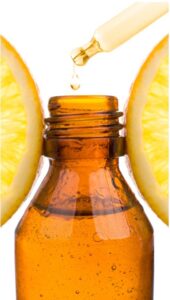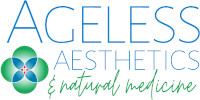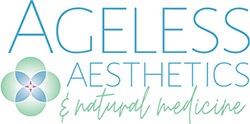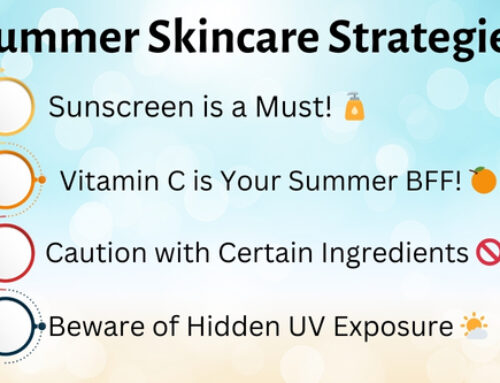
Vitamin C is an essential, water-soluble vitamin that is found in many fruits and vegetables. It is an important component for maintaining optimal metabolism and a healthy immune system, as well as healthy skin and collagen production. Vitamin C is also a powerful antioxidant that can help protect the body from free radical damage and inflammation. In this guide, we will discuss all things Vitamin C: what it is, what it does, and how you can make sure you’re getting enough.

Vitamin C’s Many Health Benefits
Vitamin C has been shown to decrease inflammation, increase immune function, and help the body absorb iron. It’s a powerful antioxidant that protects the body from damage and inflammation caused by normal metabolism, immune system activity (when you’re sick and fighting an infection), and exposure to environmental toxins, pollutants, and UV rays. When inflammation occurs, vitamin C is drawn to the site of injury where it helps reduce inflammation and promote healing. For all you science nerds, this happens because vitamin C donates electrons to quench free radicals, which are highly reactive molecules that can damage the body. Think of it like splashing water on a fire. Vitamin C also helps boost the immune system by stimulating the production of white blood cells. White blood cells are your infection defense system, and are essential for fighting infection and protecting the body from disease. Having a robust immune system means you can recover from a cold faster. This is why high doses of vitamin C are crucial when you’re sick! In addition, it helps the body absorb iron, a mineral that is essential for proper cell function and metabolism. Iron is a crucial component of hemoglobin, the protein found in red blood cells that carries oxygen from the lungs to all parts of the body. Without sufficient iron, the body’s cells won’t get sufficient oxygen to function optimally. Signs of iron deficiency include feeling tired or weak, having pale skin, and having headaches, dizziness or lightheadedness. Women of reproductive age have a higher likelihood of iron deficiency due to menstrual blood loss.

Stay Young with Vitamin C
By now it should be obvious that vitamin C is important for many reasons, but did you know that it can also help keep your skin looking young and healthy? As you may have learned in last month’s blog (check it out here) collagen is a protein that keeps your skin looking youthful. Vitamin C stabilizes the collagen protein and creates a strong network of collagen fibers that can smooth wrinkles and keep the skin looking plump and youthful. Collagen production decreases with age, so supporting the collagen you have now becomes crucial. Vitamin C may also prevent skin water loss, which means skin stays healthy and hydrated. In addition, this vitamin is a powerful antioxidant that can help protect the skin from damage caused by UV light. It is not a sunscreen, and should not replace regular sunscreen use, but it can certainly help reduce the inflammation and cellular damage caused by sun exposure. So if you’re looking to improve your skin health, make sure you are getting enough vitamin C in your diet.
Most of the vitamin C your skin needs is delivered through the bloodstream from the vitamin C you eat. But topical vitamin C, applied directly to the skin, may also be beneficial for skin health and protection from UV damage. When choosing a topical vitamin C it’s very important to consider the type of vitamin C. The natural form, and the kind that you get from dietary sources, is called ascorbic acid. It’s the most effective form, but it’s also the least stable. When exposed to air, light, and heat it quickly degrades and becomes ineffective. If you use a vitamin C skin treatment with ascorbic acid, you’ll know it’s gone bad when you see it turn yellow or brown. A better formulation of topical vitamin C is made from ascorbyl palmitate (another type of vitamin C), along with vitamin E and Ferulic acid. These two other ingredients help stabilize and boost the effectiveness of vitamin C. The most stable form of topical vitamin C is called Magnesium ascorbyl phosphate (MAP). This type of vitamin C is not affected by light or air, and is easily absorbed through the skin without causing irritation.
How Much Do You Need?
We’ve established how and why vitamin C is a crucial part of your diet, but how much should you be getting every day? The recommended daily intake, like most vitamins, varies depending on the person. For adults, the minimum recommendation is 75mg per day for women and 90mg per day for men. During times of illness, the recommendation goes up to 120mg per day, or more depending on your doctor’s recommendations. Signs of underdose include dry skin and easy bruising. Signs of overdose are acute gastrointestinal discomfort (diarrhea and nausea). You’ll know if you’ve taken too much! In topical applications, the recommended maximum percentage of vitamin C is 20%. Studies have shown that formulations containing greater than 20% of vitamin C are no more effective than those with less.

Where Vitamin C Comes From
Vitamin C is a nutrient that plays a vital role in many bodily functions. It is an essential vitamin, which means we don’t produce it naturally – we have to eat it. Because it’s a water soluble vitamin, our bodies cannot store it long-term, so we need to regularly ingest vitamin C through diet or supplements. Most people can get the recommended amount of vitamin C through their diet, however some people may need supplements depending on their individual needs.
It’s not Just in the Juice
Despite what the orange juice companies say, the best source of vitamin C is not oranges. They do provide healthy amounts of this vitamin, but they’re definitely not the best source out there. Other foods that are easy to find and are high in vitamin C include:
- Chili peppers- One green chili pepper contains 109 mg of vitamin C.
- Sweet yellow peppers- One large yellow pepper provides 342 mg.
- Strawberries- One cup of sliced strawberries has 97 mg.
- Kale- A 100-gram portion of raw kale has 93 mg.
- Broccoli- One-half cup of cooked broccoli provides 51 mg.
Don’t skip the oranges, but you don’t need to have a glass of orange juice every morning to get your daily intake. Supplements are also a good way to get this vitamin into your diet, just make sure the vitamin is from a reputable source.
We’ve all heard that vitamin C is great for a cold, but it’s a powerful vitamin that plays many roles in your overall health. Whether you’re getting it from your diet, from supplements and products, or a combination, it can make a real difference! Let’s talk about the best way you can use it to your best advantage.

Time always moves forward; it never moves backward. By starting a treatment protocol now you can protect and enhance the skin you have and prevent the effects of aging from ever happening. The first step in taking control of your apparent age is to schedule a video call where we will talk about YOU and how you want to feel about yourself. From there, we will create a treatment plan that will help you achieve your goals. The most important step is for you to make the decision to get what you want. Book an appointment and we’ll chat! For more information like this, click here.






